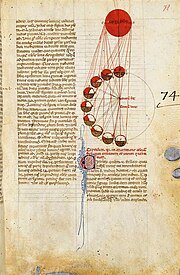Abu Abdullah Al-Batani: The Muslim Genius of Astronomy and Mathematics

Abu Abdullah Al-Batani, a renowned 9th-century astronomer and mathematician, made groundbreaking contributions to astronomy and trigonometry during the Islamic Golden Age. Born in Harran, he refined Ptolemaic models, accurately calculated the solar year, and introduced advanced trigonometric functions. His works, especially Kitāb az-Zīj, influenced later scholars, including Copernicus. Al-Batani’s precise observations and mathematical innovations laid the foundation for modern astronomy and navigation, securing his legacy as one of history’s greatest scientific minds.
Early Life and Education
Al-Batani was born in 858 CE in Harran, located in present-day Turkey. He later moved to Raqqa, where he pursued advanced studies in astronomy and mathematics. Influenced by Greek, Indian, and Islamic scientific traditions, he built upon the works of Ptolemy and earlier scholars. His rigorous observations and mathematical expertise played a crucial role in refining astronomical calculations, laying the groundwork for future advancements in the field.
Major Contributions
Astronomy
Al-Batani made significant advancements in astronomical studies. He refined Ptolemaic models, correcting planetary motion theories and improving celestial calculations. His precise measurement of the solar year (365 days, 5 hours, 46 minutes) surpassed earlier estimates. He also observed planetary orbits, solar and lunar eclipses, and the movement of celestial bodies with remarkable accuracy.
Mathematics & Trigonometry
Al-Batani played a crucial role in developing trigonometry. He introduced trigonometric functions such as sine, cosine, and tangent, replacing Ptolemy’s chord method. His work in spherical astronomy led to new equations, aiding celestial navigation. His trigonometric calculations became essential for future mathematical and scientific developments.
Scientific Methods & Innovations
A pioneer in observational astronomy, Al-Batani utilized advanced instruments to enhance accuracy. His systematic approach influenced later Islamic and European scholars, including Copernicus. His seminal work, Kitāb az-Zīj, became a foundational text in astronomy, shaping the future of celestial studies.

Legacy and Influence
Al-Batani’s works, particularly Kitāb az-Zīj (The Book of Astronomical Tables), were later translated into Latin and became a cornerstone for European astronomy. His precise calculations and trigonometric advancements influenced scholars such as Copernicus, who referenced his work in developing the heliocentric model.
His legacy extends to modern astronomy, navigation, and trigonometry, with many of his methods still relevant today. His emphasis on precision and observation helped shape the scientific approach that defined later astronomical and mathematical discoveries.
Conclusion
Abu Abdullah Al-Batani’s groundbreaking contributions to astronomy and trigonometry solidify his place as one of the most influential scientists of the Islamic Golden Age. His precise astronomical calculations and advancements in mathematical techniques laid the foundation for modern celestial studies. Recognizing scholars like Al-Batani highlights the rich scientific heritage of the Muslim world and its lasting impact on global knowledge. His work continues to inspire further exploration of the contributions made during this golden era of scientific discovery.



